With blades laced to their feet and beaming smiles of achievement and anticipation, the Rollins Hockey Club officially enters a new phase starting next fall: playing in an AAU D3 College Hockey South division. The Rollins Hockey Club began in the fall semester of 2023.
“We’ve just been playing from behind for quite a lot of time,” commented Rollins student and hockey player Cash Volpe (‘26) as he expressed his excitement for the future of the team in the AAU.
The AAU (Amateur Athletic Union), although separate from the NCAA (National Collegiate Athletic Association), is a non-profit organization striving to promote the development of amateur sports and physical fitness programs.
In an interview with another Rollins student and hockey player Ronnie Shamus (‘26), he explained his personal start with the group.
“I played hockey all through school, up until college and I was missing it. I was talking to my roommates like ‘oh I want to start playing again’ and one of my roommates said to me, ‘there’s a club hockey team about to start-up but they don’t have enough guys to start it,” said Shamus. “I said ‘okay’ and reached out to see if I could join. So, I reached out then started playing. It was once a week, so it was the perfect schedule and I got back into it.”
With passionate players and backgrounds full of personal connections to the sport, the Rollins Hockey Club was destined to ascend the ranks.
As part of the College Hockey South division of the AAU, the team will now have more opportunities to compete in tournaments against a catalog of thirteen other teams spanning from Florida to Kentucky. With a more relaxed schedule than that of an NCAA League, the AAU offers new challenges and experiences to Rollins players as well as the opportunity for growth up to D1.
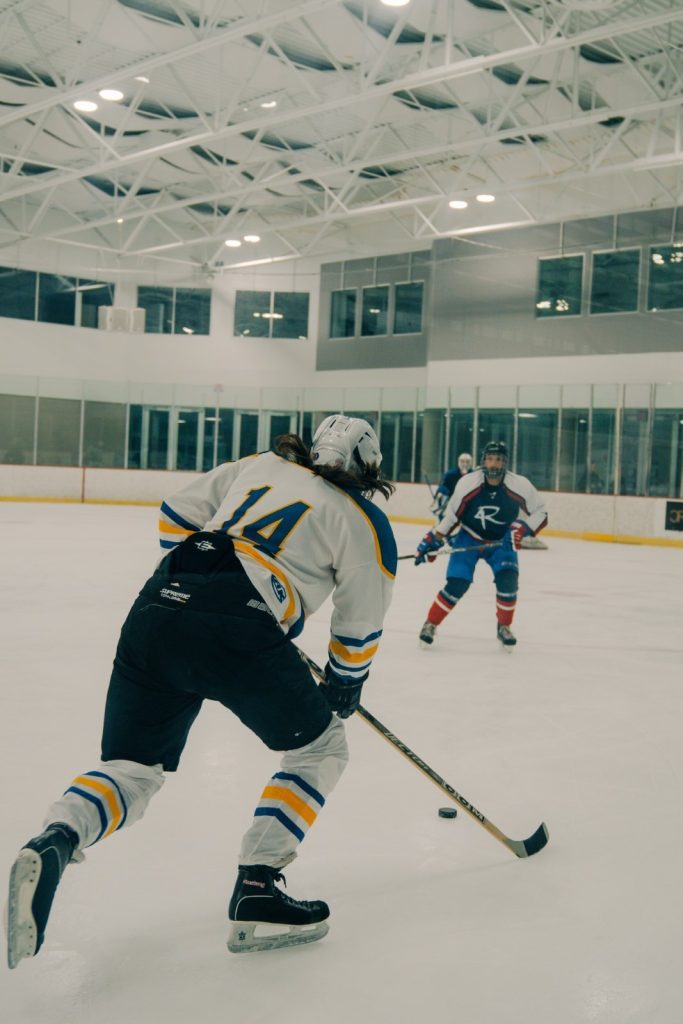
Photo courtesy of Elizabeth Hall
“The whole process we went through to get to this point was very challenging overall,” said Volpe. “Even signing into a men’s league was more difficult than it was to get into CHS D3, in terms of getting commitment from players, funding from the players, and also working with the ice rink themselves.”
“They’ve [Orlando Ice Den] been going through a lot of managerial changes over there, so the people who are in charge of getting ice time were difficult to get responses from throughout this process. We actually weren’t in an official league until the week before both seasons, last fall and this spring,” added Volpe.
After back-and-forth communication between the directors and teams, such as Embry-Riddel, Tampa, and UF, the Rollins Hockey Club was told the requirements for entering the league: needing an official coach, making sure the team has enough players, and amassing funding.
“We were expecting to get a little more funding from the school than we have been,” said Volpe. “We have been trying to get them to increase the club sports budget, but that to no avail, so it’s really just finding every possible creative solution to solve these problems and move forward with it.”
“We’re opening a team store soon and there will be Rollins Hockey merch to buy. All proceeds will go towards the season next year,” Shamus said, emphasizing the importance of funding for a competitive team sport and its connection to student engagement.
Although the CHS may be considered “a step down from the NCAA” according to Shamus, it is operating at a more competitive level than standard clubs.
A more advanced season suggests practices will have to expand from once a week to that of a more traditional varsity sport. Shamus believes this will entail daily practices and weekly games. With such an active schedule, countless opportunities are provided for Rollins students to experience the growth of a brand-new team and play an active role in its success story.
For the players, gearing up for the upcoming fall season means more than partaking in their routine schedule. To start, it is important for all those playing and spectating to understand key differences between the AAU and the NCAA.
The AAU strongly emphasizes accessibility to athletics and competitive environments. It offers more opportunities compared to the NCAA. Teams of the AAU may also participate in as many competitions as they would like, but this comes at a cost. The NCAA is mainly funded by the school while the AAU is by the students.
As new challenges and experiences are offered by the CHS, the Rollins Hockey Club is also offered the opportunity to travel. With fellow hockey teams spanning from Florida to Alabama to Kentucky, the team expects travel to be one of the biggest changes in the upcoming season.
The new intensity within sight of the players, next semester will primarily rely on a try-out basis as well as going to recruiting events and asking people to come to Rollins to play hockey.
“Last semester we had a lot of guys not want to do it, just because we have a big group of people from the Northeast here: New York, Massachusetts, New Hampshire, Rhode Island, Connecticut, and even Chicago and the Mid-West,” said Shamus. “And a lot of those guys played hockey all the way through high school, but then look[ed] at the hockey team last semester like ‘Oh we’re not going to be any good. It’s late on Monday nights and I don’t really want to do that.”
As time went on, however, support for the hockey club began to grow. Shamus described the current procedure for club induction as relaxed and one where the only requirement asked: “Are you able to physically contribute on the ice in some way?”
“We started getting more publicity thanks to the FCA and the baseball team. We had a lot of people coming out and watching the games. By word of mouth, more and more people started showing up,” said Shamus. “Then, we won the championship in our league, and now this semester we are having a giant influx of people and guys who are really interested in playing, and kids at the school are coming out and supporting us.”
By coming out and supporting Rollins Hockey as they break the ice barrier between the club and the official team, the legacy of those players may be immortalized in the history of Rollins College Athletics.
“It’s not just for the hockey players, it’s for the school overall,” said Volpe.


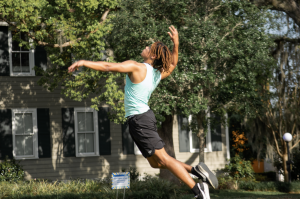

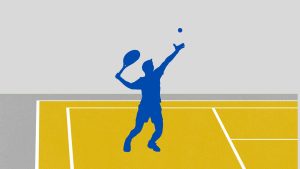
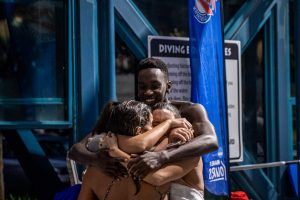
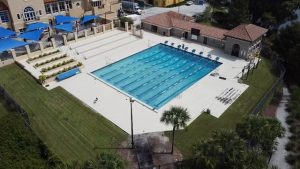
Comments are closed.